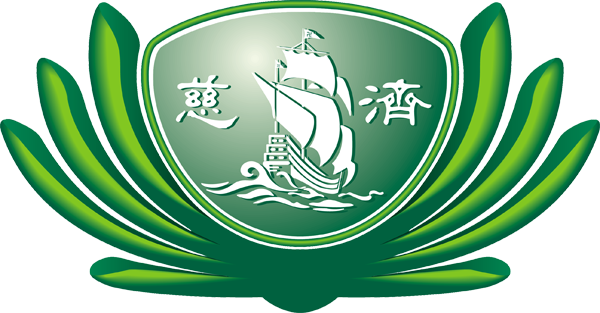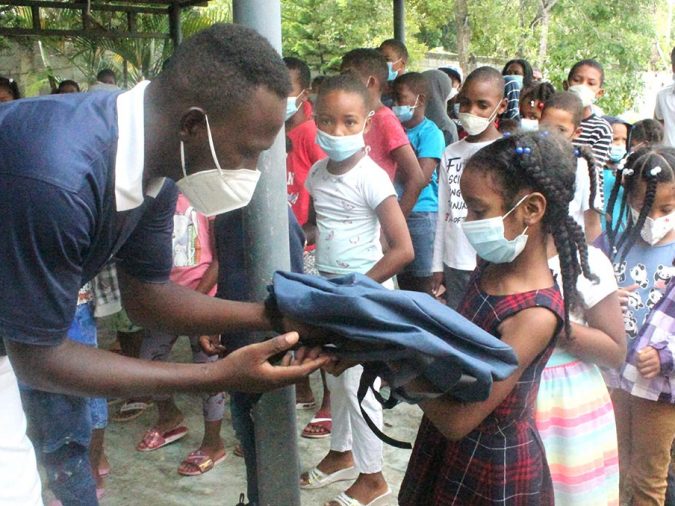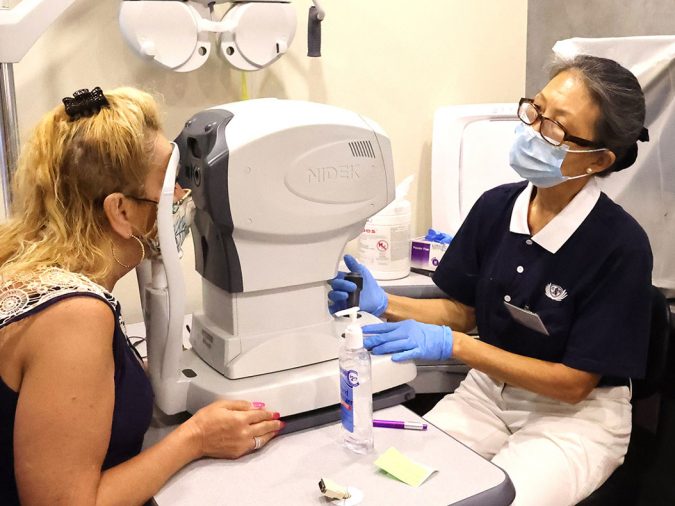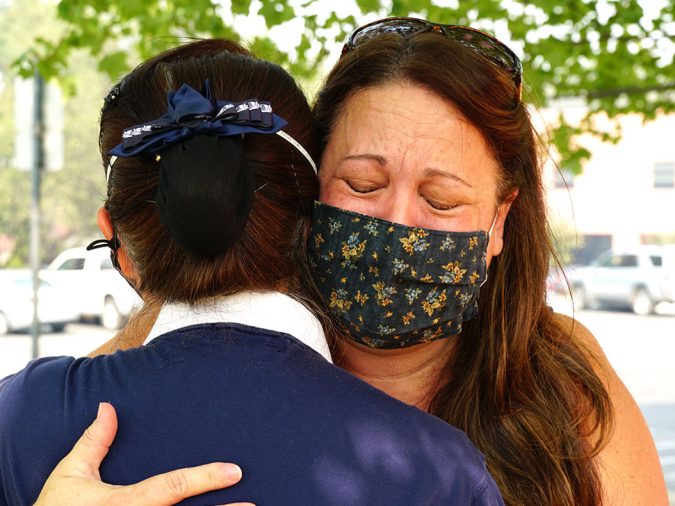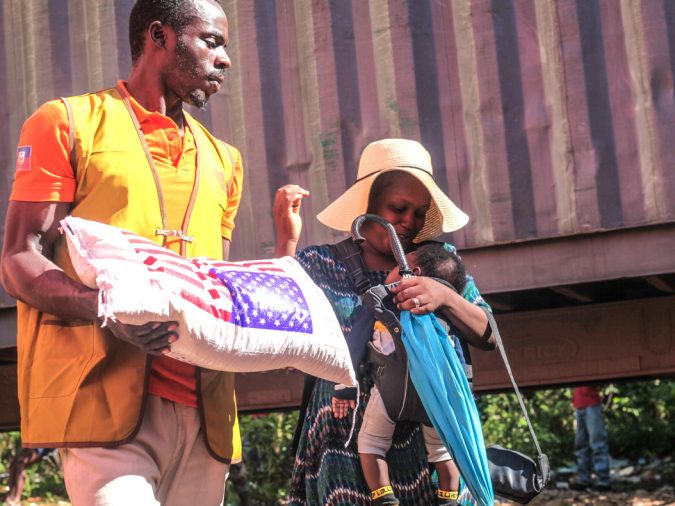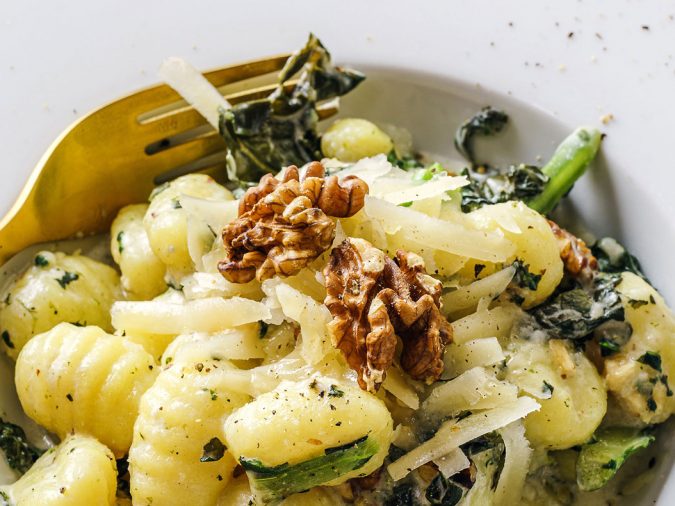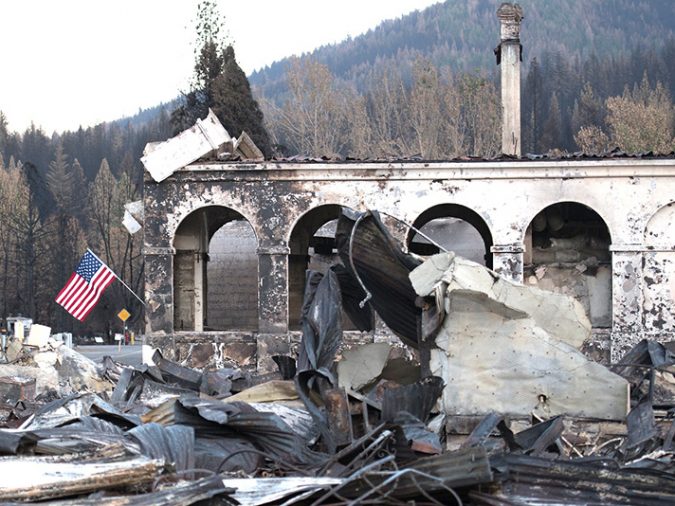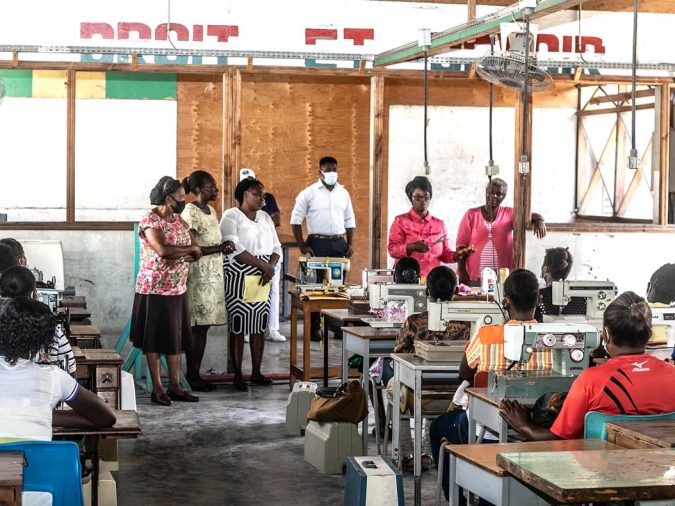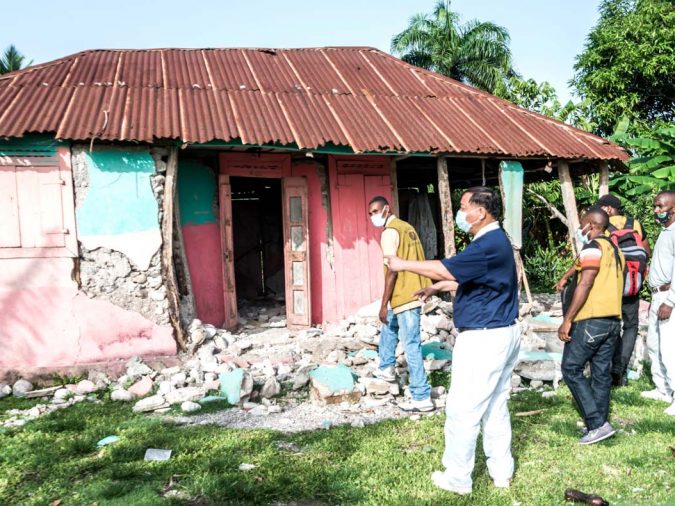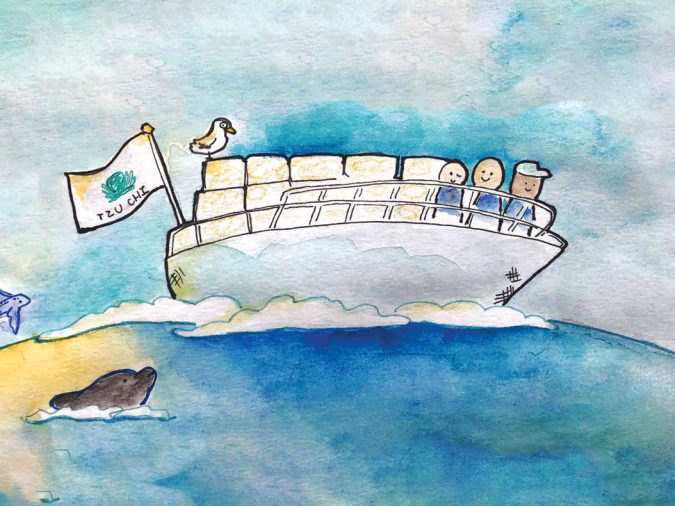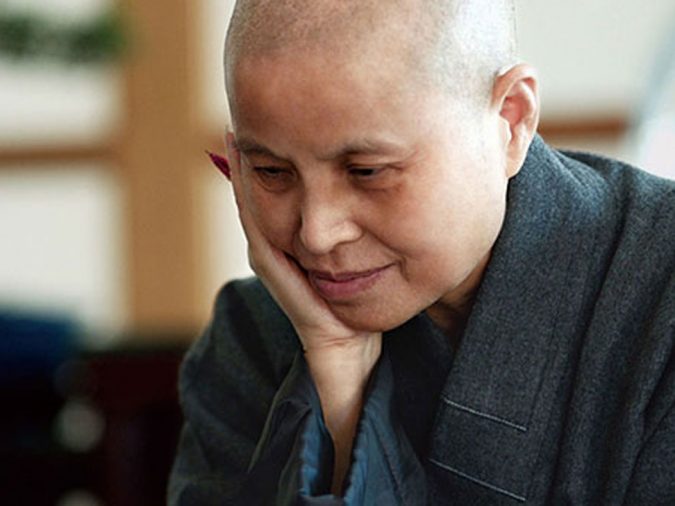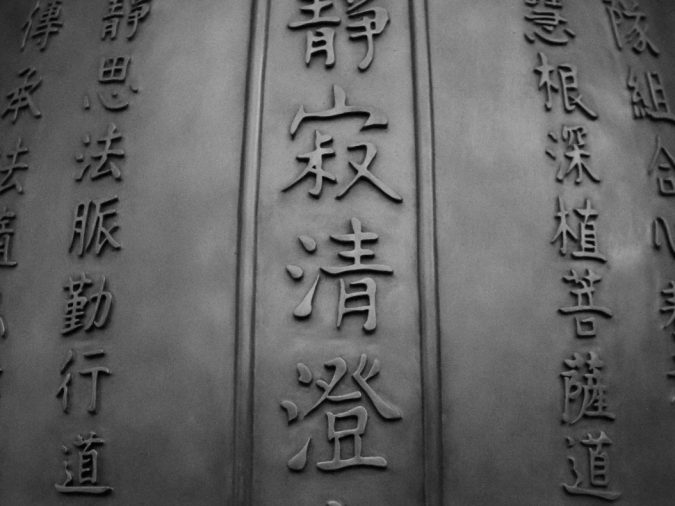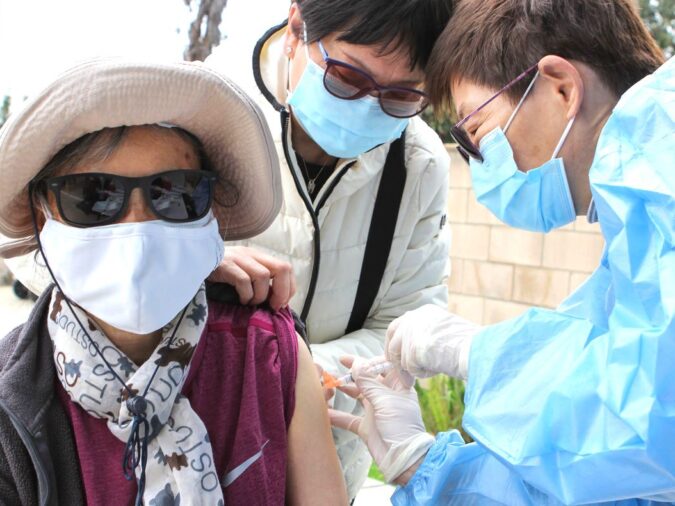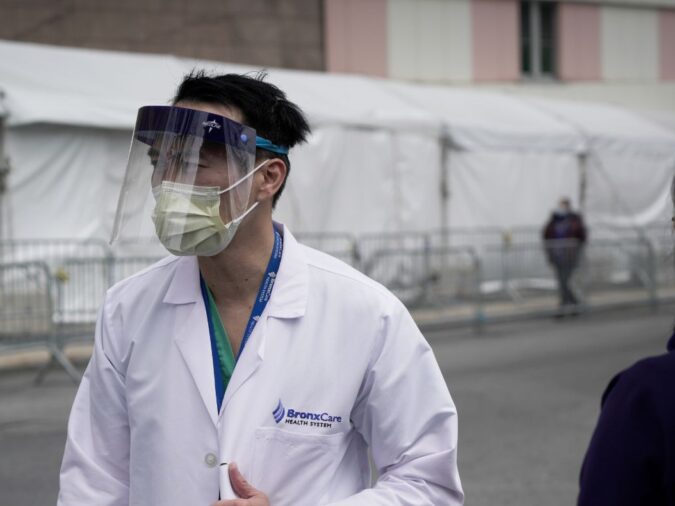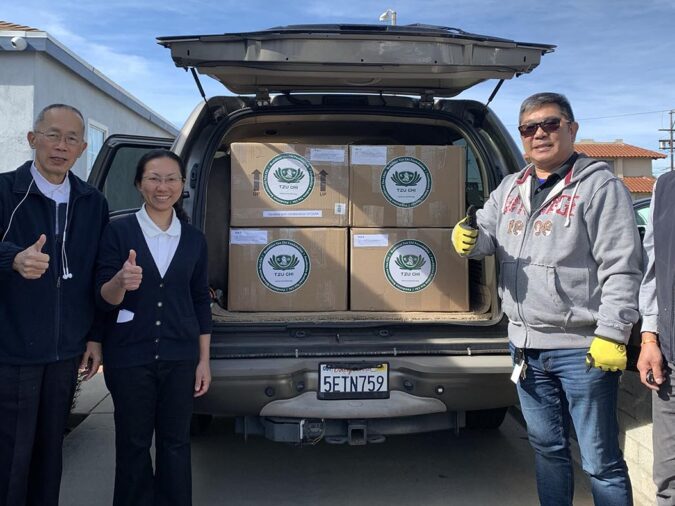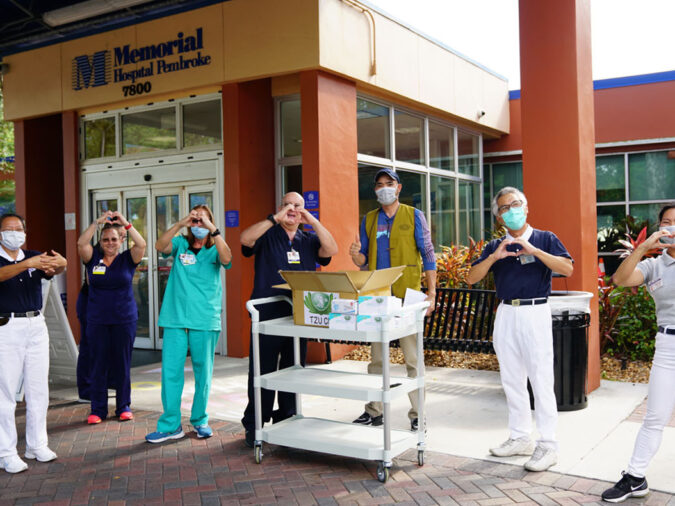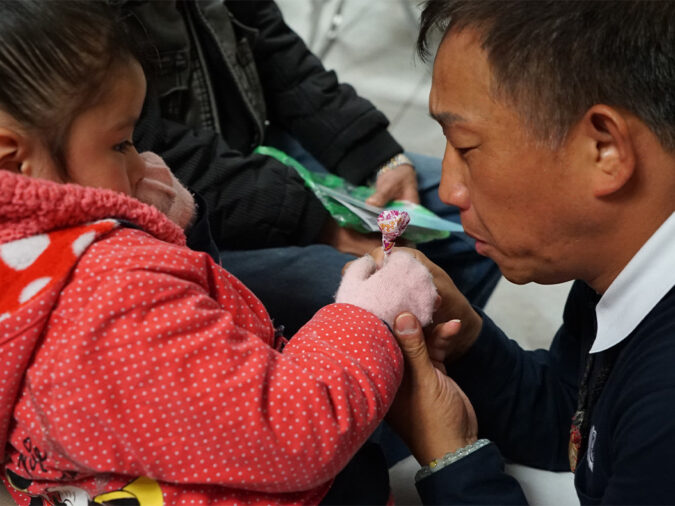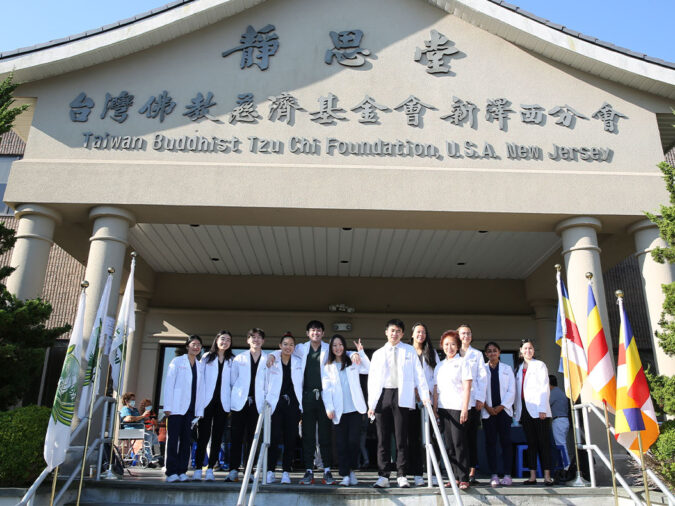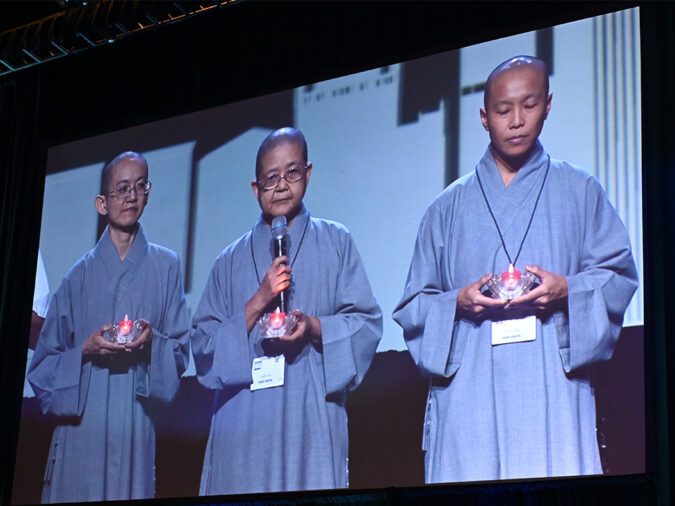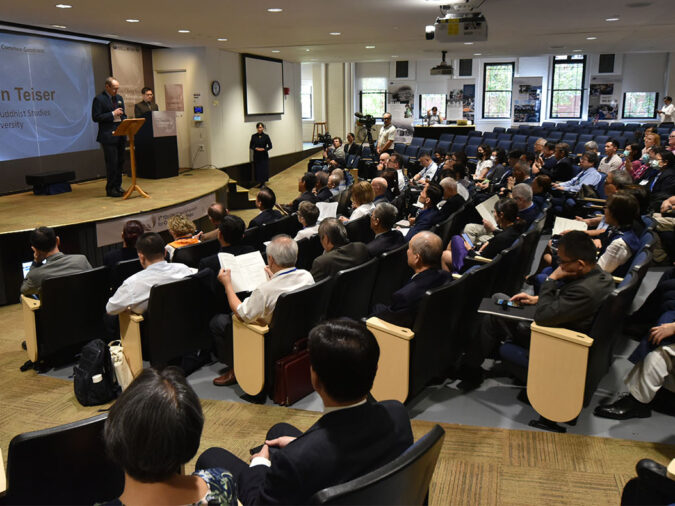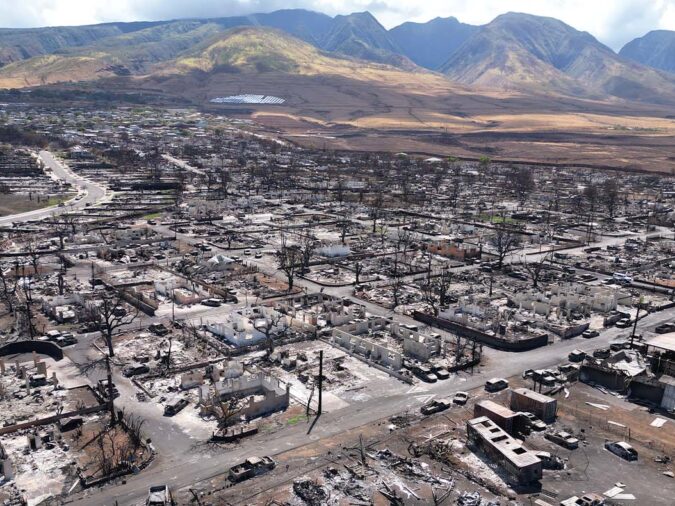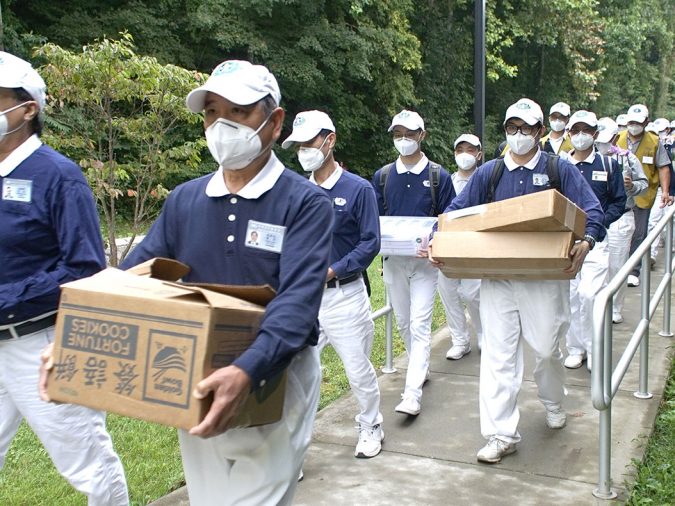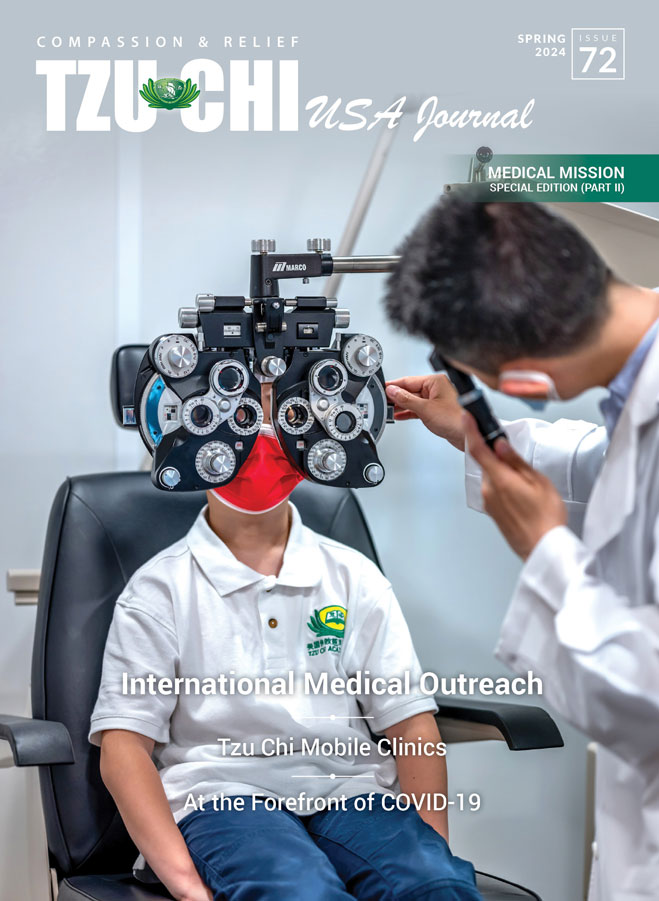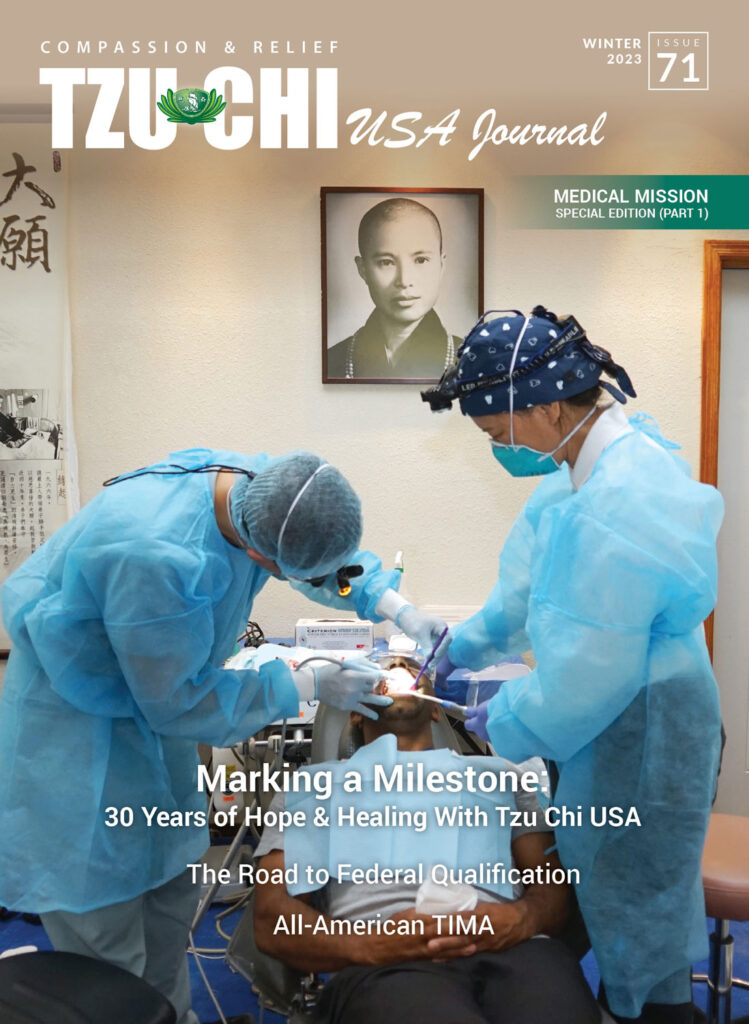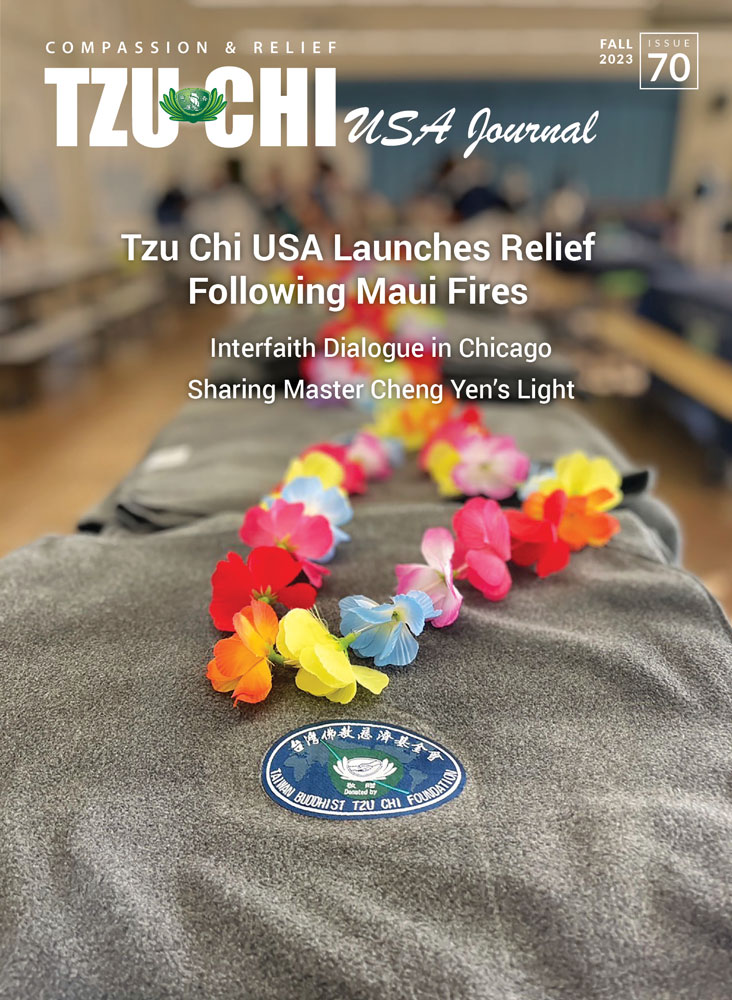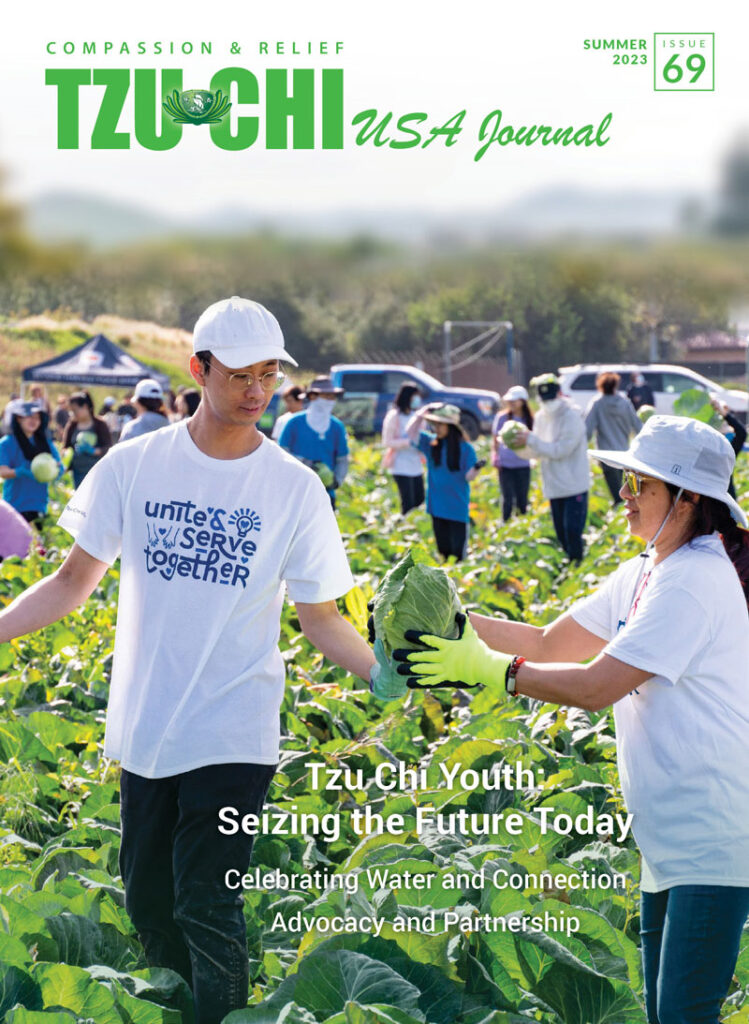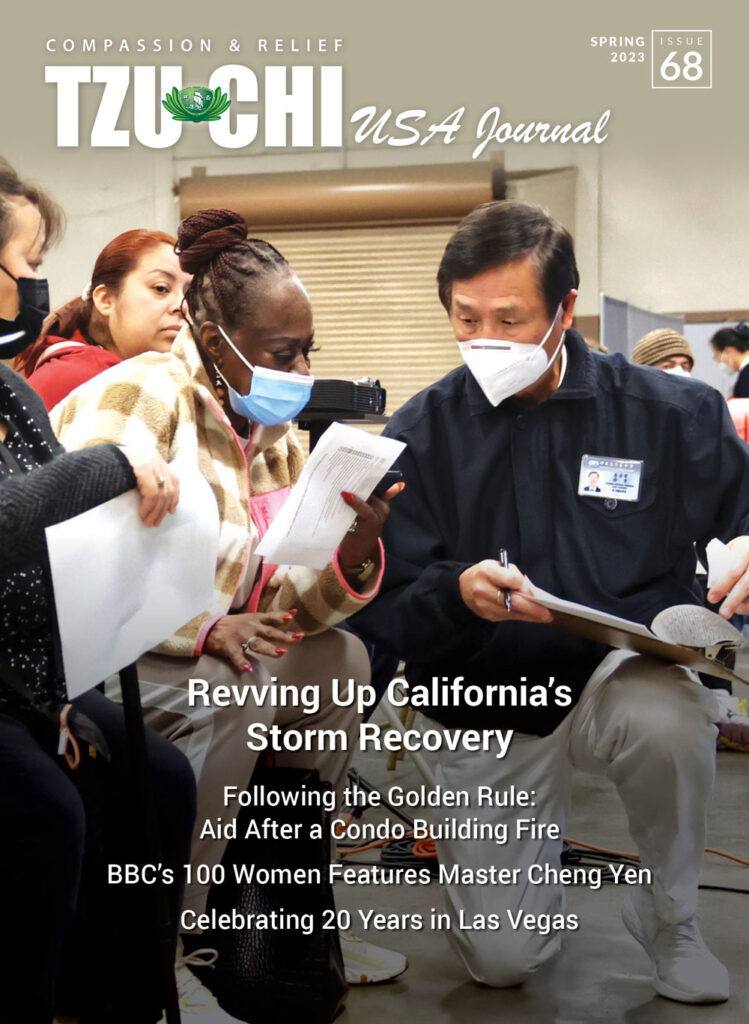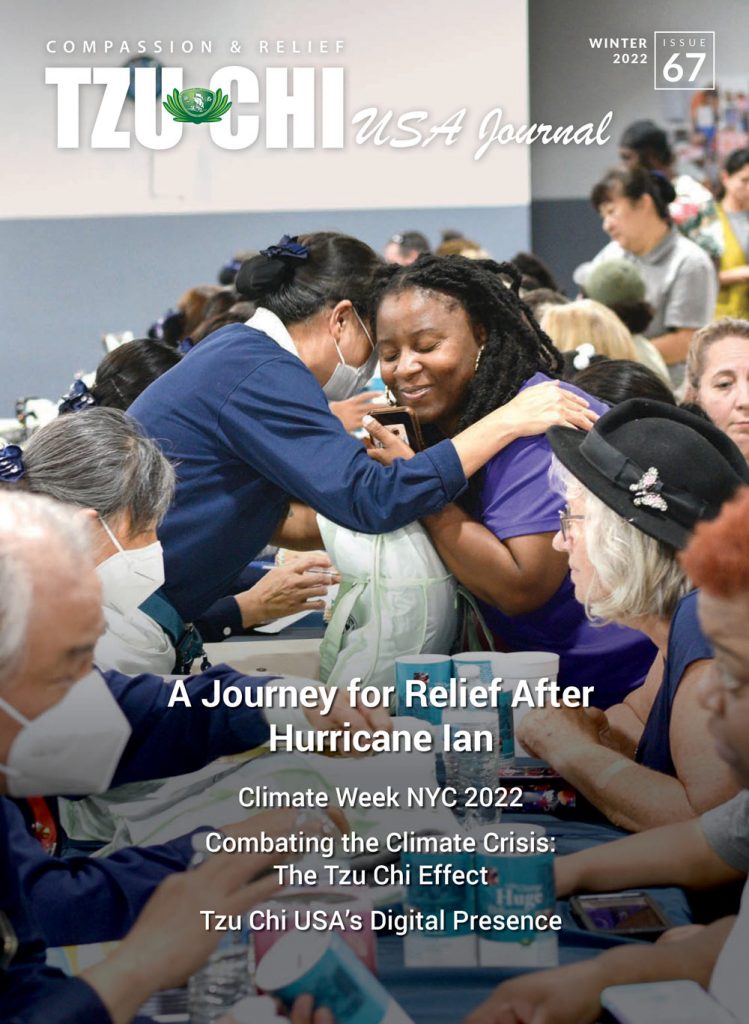By Adriana DiBenedetto
Published #63 | Winter 2021 Issue
On September 1, 2021, the American Red Cross staff arrives at the Tzu Chi USA Southern Region office in Houston to collect emergency relief supplies. Photo/Wendy Tsai
SHARE
Hurricane Ida made landfall near Louisiana’s Port Fourchon as a Category 4 hurricane on August 29, 2021, sixteen years to the day that Hurricane Katrina crashed ashore, and from there, it set off on a frightening path. Hundreds of homes were destroyed in its wake, trees were uprooted, vehicles were inundated or overturned, and more than one million Louisiana residents, including in the city of New Orleans, lost power at home. With thousands impacted by the storm, the ongoing spread of COVID-19 only served to compound an already lengthy list of deeply pressing concerns.
What’s more, debris, downed electrical wires, trees, and stagnant water rendered roads and highways in hard-hit communities inaccessible, making it difficult for first-responders to enter affected areas. Nevertheless, even with roads not yet reopened and the impossibility of entering disaster areas, Tzu Chi was determined to help. Volunteers reached out to collaborating emergency relief organizations, seeking other ways to bring relief to survivors.
The first of Tzu Chi’s Hurricane Ida response efforts came when the Taipei Economic & Culture Office in Houston, Texas, contacted Tzu Chi USA Southern Region’s office. As of August 31, 2021, Tulane University in New Orleans had evacuated over one thousand students to Hous-ton, to ensure their safety in the aftermath of so much destruction. With this, volunteers sprang to action, assembling and delivering 20 first aid kits and 50 care packages to the relocation site where students were staying temporarily. The care packages included personal essentials like toiletries, towels, and face masks, in addition to cash cards loaded with emergency funds.
Then, on September 1, Tzu Chi volunteers contacted the American Red Cross (ARC) in Corpus Christi, and Ed Fleshman, the Director of Emergency Relief Projects at the American Red Cross, hastened to arrive at the Tzu Chi USA Southern Region office in Houston that same morning. After sorting out the logistics together, 200 eco-blankets and 10,000 protective masks soon arrived at the American Red Cross office in the city; Tzu Chi Houston volunteers having assisted ARC staff with the transportation due to the large volume of donated supplies.
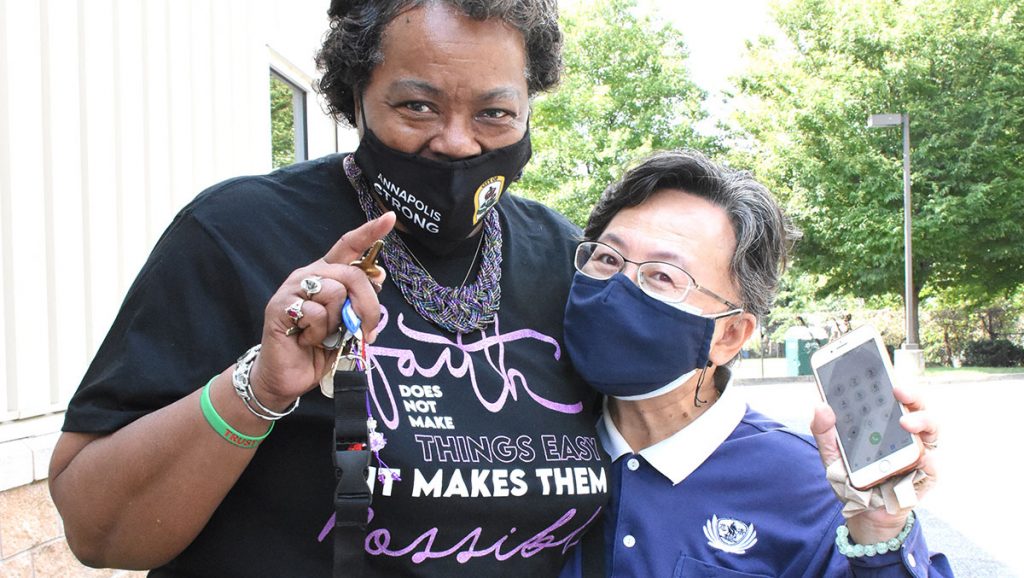
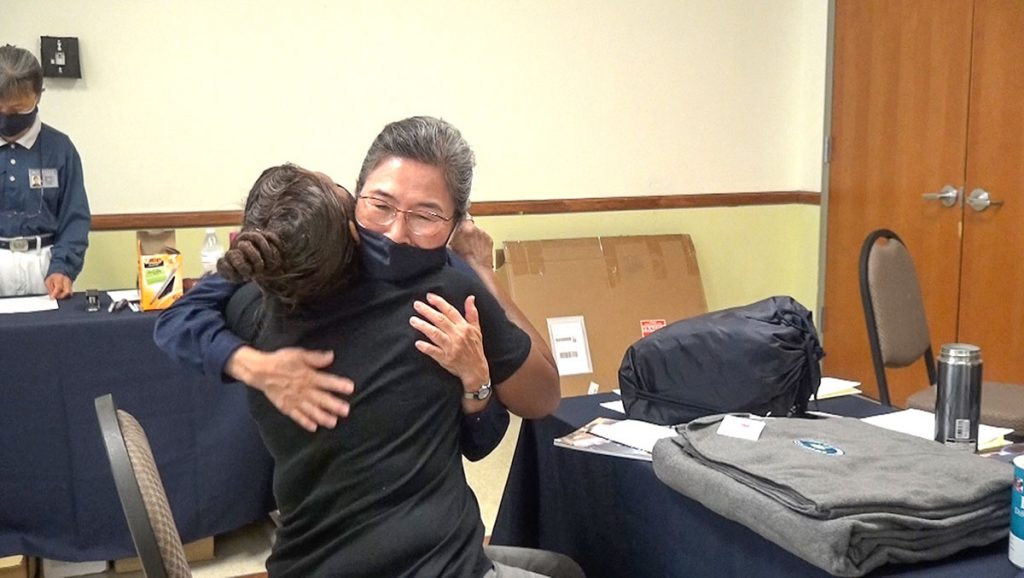
At approximately 2:00 PM on September 1, the storm’s path traveling northeast had also reached Annapolis, the capital of Maryland, where the swirling mass of a tornado generated by the storm’s remnants wreaked havoc in the Greater Washington D.C. area. Upon hearing the startling news, volunteers from Tzu Chi USA’s Greater Washington D.C. Region mobilized to start evaluating the scope of damages with plans for disaster relief distributions to begin straight away.
Volunteers set out for three local disaster areas to document the damages done and interview homeowners. They revealed that at least three of the houses surveyed were newly built, the families enjoying their new homes for fewer than six months when the tornado descended. One of the houses had tilted heavily and was off its foundation, likely requiring extensive rebuilding after this catastrophe.
The first distribution was held at the Mt. Olive Community Life Center in Annapolis on September 11 to offer volunteers’ love, care, and a listening ear alongside crucial financial relief. And indeed, each of Tzu Chi’s disaster relief cash cards holds the love of people from all across the globe who wish to ensure survivors know they’re not alone — that people they’ve perhaps never met care about them, and deeply so.
On September 13, Tzu Chi Greater Washington D.C. volunteers hosted another distribution at Rockville City Hall in Rockville, Maryland, and helped survivors whose homes experienced severe flooding arrange temporary shelter.
Thank you to all the people who came to help us today; I didn’t expect so many people who cared. It means so much to someone who has just lost all her possessions! Thank you.
Tyree Jones, Care Recipient
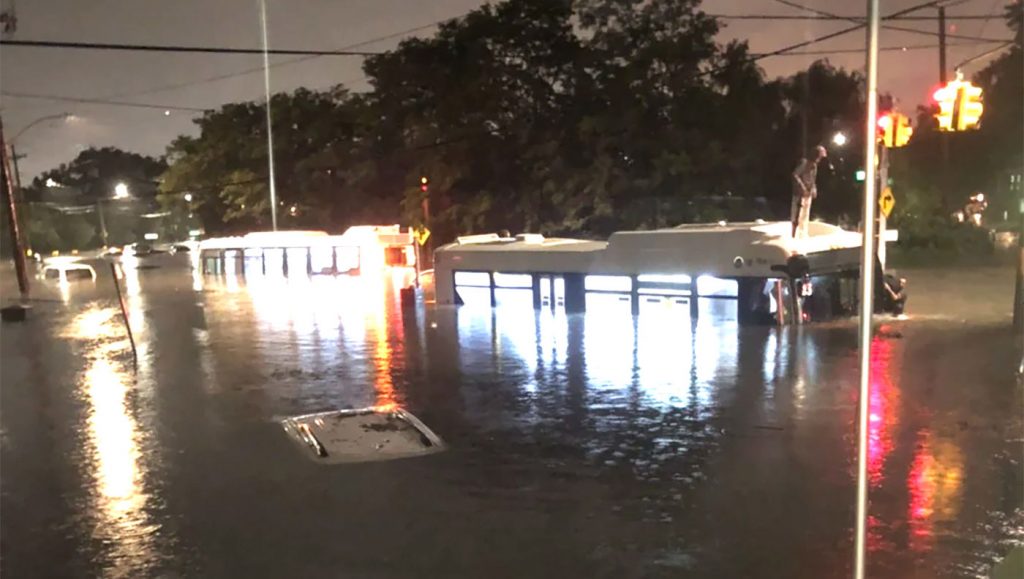
Trouble in New York and New Jersey
Although Hurricane Ida gradually downgraded into a tropical depression after its landfall, the heartache it would bring to the Northeast was devastating all the same, especially in New York and New Jersey. On September 1, 2021, the powerful remnants delivered pounding rain and severe flooding. With the drainage capacity exceeded in New York City, rising water had nowhere to go. As a result, it inundated residences and subway stations, produced power outages, stranded motorists, and tragically claimed the lives of residents who could not escape to safety. The very next day, Tzu Chi USA Northeast Region volunteers were on the scene. They mobilized swiftly to hardhit areas offering food, supplies, and just as crucially in the face of a disaster, their sincere emotional support. They helped clear away debris from homes and nearby streets for days following the flood, all the while readying to provide further relief.
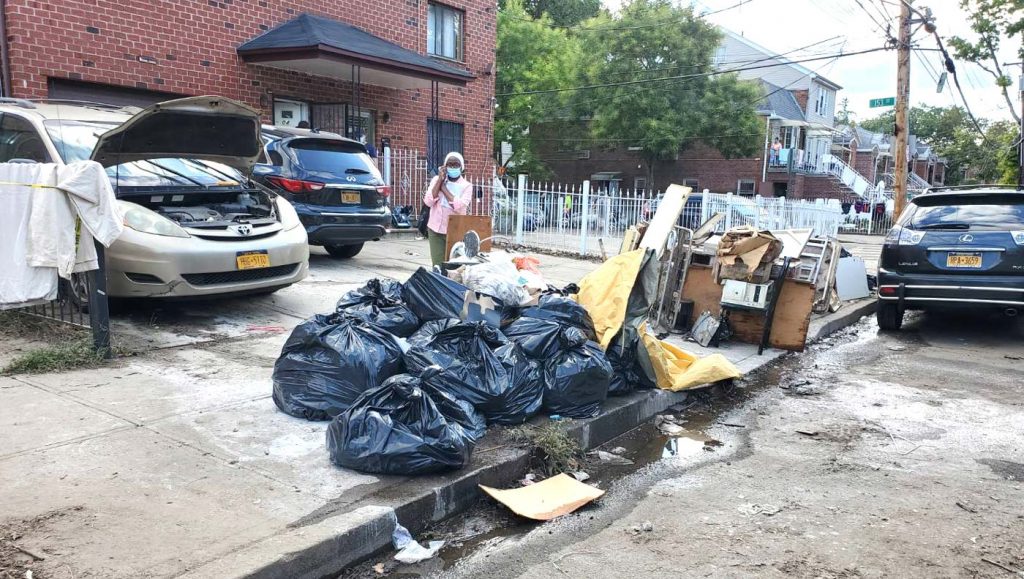
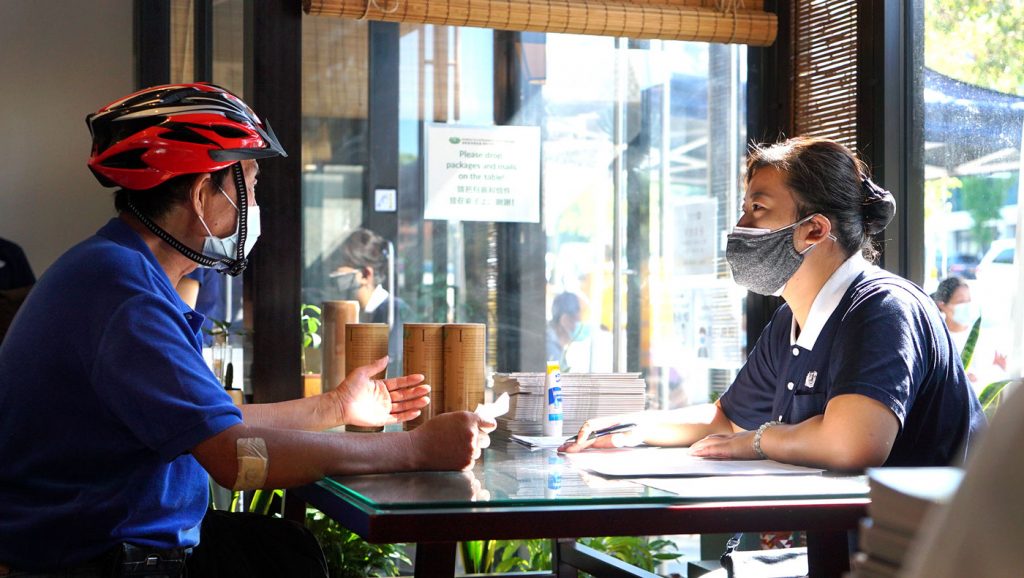
While much of the water outside had receded, the accumulation inside homes remained. Neighbors — some who’d said ‘hello’ to each other for the first time ever — helped one another pump water from their homes, and families moved drenched insulation, furniture, and other possessions out onto the pavement, the still-pungent smell of floodwater hanging in the air.
The storm hit many areas in Queens Borough hard, some of them home to local Tzu Chi volunteers. A veteran Tzu Chi community volunteer named Yu Guei Wu had her basement wholly flooded, with the ceiling collapsing and rainwater rising up to the air conditioning vent on the first floor.
Next door, a Chinese family of three who lived in a basement apartment had become trapped, and couldn’t get out that night. They were found by the police the next day. Reports revealed that nearly all the residents who died due to flooding caused by the storm in New York City were of Asian descent and lived in below-ground dwellings. “It’s a housing concern, it’s an immigration concern, it’s a health care concern. All of it, and you see it all at once,” said a Tzu Chi volunteer named Lei Huang when later reflecting on her relief work. Paired with the ongoing pandemic and a changing climate, already unsafe living conditions — often having low ceilings, exposed wiring, and only one direct exit — have become an increasing danger to human life.
Chun Tzu Chung, a senior Tzu Chi volunteer in her 80s, recalled the situation that night with palpitations. “It was even worse than the disaster caused by Hurricane Sandy ten years ago,” she said. “The water started to rise at about 11:30 PM that night, and the entire basement was flooded by midnight. It was too late to move anything, and the water flooded up to the first floor. My husband and I dared not close our eyes to sleep until dawn, when we had our son take over.”
Upon thinking of Dharma Master Cheng Yen’s teachings, however, Chun Tzu’s heart naturally settled. Still, the following morning, she remembered just how grave this catastrophe was when she saw that the park across the street still looked like a sea.
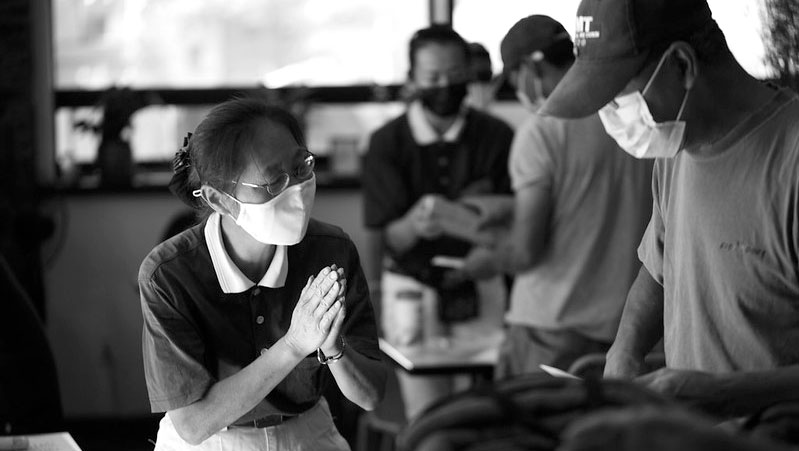
A Tzu Chi social worker, Tse Jen Chu, called more than ten long-term charity care recipients one by one early on September 2. All of the care recipients lived in basement apartments, and Tse Jen discovered that two families experienced severe flooding in their homes. One of the care recipients is a single mother who lives in the low-lying Kissena Park neighborhood. The basement had flooded up to her waist, leaving mattresses and bookcases soaked and damaged. She temporarily moved upstairs to her landlord’s apartment. Volunteers quickly By Adriana DiBenedettobrought secondhand mattresses and cabinets, providing additional supplies later.
By September 3, Tzu Chi had set up the New York City Tropical Storm Ida Emergency Relief Center in an effort to reach out to the community, and distribute emergency relief as soon as possible.
“The experiences felt among New Yorkers are so different,” expressed Yang Lee, a Tzu Chi volunteer. “Almost everyone’s had a different experience. Many flooded places weren’t identified as a flood zone, traditionally. Many flooded neighborhoods’ damage isn’t visible on the street level. You have to talk to the residents or have access to their basement.”
“This one mother has two kids, young kids,” recounted Tzu Chi volunteer Lei Huang. “The husband went outside to park the car, so it’s on higher ground. When he came back, he almost couldn’t open the door because of the water pressure. He opened the door with difficulty and got in. As he came in, more water came into the basement, and he could no longer open the door from inside. So all four of them were trapped. The couple put the kids on the kitchen island and tried to figure out a way to get out of the apartment, but there was no other access. He is a carpenter in training, so he opened up the drywall using a hammer and went up to some internal stairs that were originally closed off by drywall. The kids were afraid as their father was working on this — afraid of getting electrocuted by whatever was happening in the water. So the parents quickly put the kids through the hole in the drywall and up.” Upon hearing this story, Lei couldn’t help but worry about what might have happened had the husband not been able to break through the wall.
Some families also didn’t know about the dangers of living with black mold growing in one’s home, and would remain in their previously flooded apartment for weeks.
“The flood was at least this high,” said Yang Lee, pointing to a stain on the first floor of a home where the water had risen even higher than he was tall. With nowhere else to go, many survivors stayed in their waterlogged homes. “The houses are still wet, and you can smell the mold,” he said. “Their gas supply hasn’t been restored yet. Many of them can’t take a shower since the flooding. And they couldn’t cook; food is a big issue. Sometimes they receive donations of food. These are frozen foods. But they have no place to heat them.”
Among the local residents visited by Tzu Chi volunteers were Niculae Neascu and Yi Bao. They lost a great deal in the flood, and had to clean everything themselves.
“The water was coming so fast, I don’t know where from,” said Niculae as he showed volunteers his home. A foam floor mat still clung to the ceiling. “We worked for three days to empty it and clean it up. As you can see, we have nothing left.”
A Tzu Chi volunteer, San San Chiang, notified the pair about Tzu Chi’s flood relief mission. “Tzu Chi will give you some financial assistance,” she said, earnestly moved by their situation. “You can get some furniture and food.”
The help Tzu Chi gave us is just like a candle in the dark. They gave us hope and the light to move on when we faced the most difficult moment in our lives.
Yi Chai, Tzu Chi Care Recipient
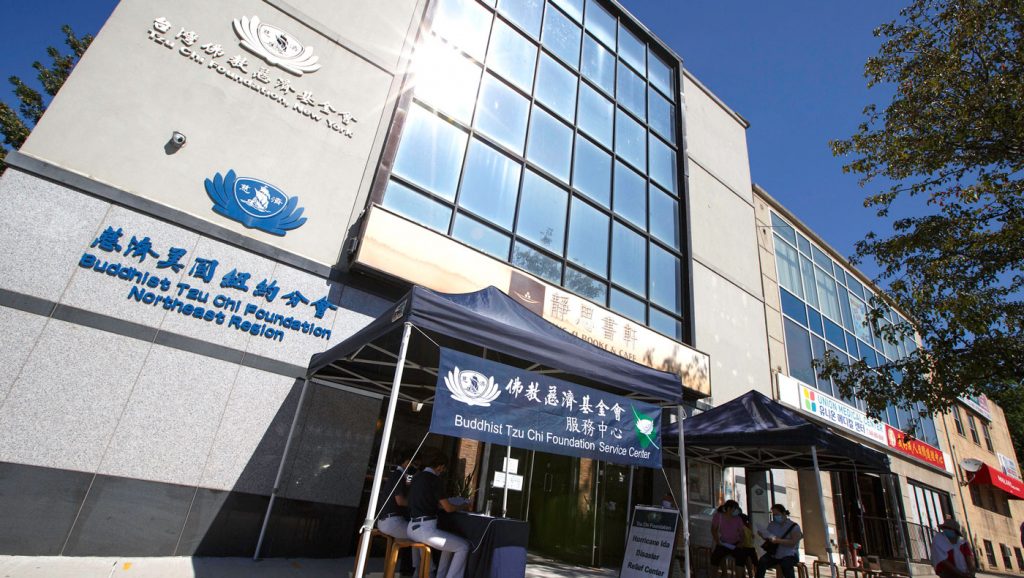
The first flood relief distribution in New York took place at the Tzu Chi USA Northeast Region office in Flushing on September 8, aiding 26 families. A second distribution followed closely on the 11th, aiding 61 families, and a third was held on September 18, helping 61 impacted households. Together, 36 volunteers at these three distributions aided 134 affected households, providing 127 eco-blankets, 124 boxes of disposable masks, 124 boxes of multigrain biscuits, 124 boxes of instant multigrain mix, and a combined amount of $101,300 in cash cards.
Each large household received a cash card of $1,000, while smaller households got a cash card of $600. While Tzu Chi’s short-term emergency relief phase has concluded, volunteers’ mid-to-long-term response would soon begin with case-based care for low-income flood survivors who experienced severe losses to help them rebuild their lives.
In times like these, it’s hard not to wish you had magic, Lei Huang shared, so that all these hurts can be swiftly healed. Tzu Chi volunteers, however, employ something a little different, but just as compelling:
Wholeheartedly gather the power of love and create a cycle of love.
Jing Si Aphorism by Dharma Master Cheng Yen
“I was asked to take care of one of the intake stations since I had some experience meeting people affected by different disasters,” said another Tzu Chi Volunteer named Annie Chu. “I just wanted to help wholeheartedly. When the day approached, I started thinking, ‘What if people ask me something I don’t know? What if people break down and I don’t know how to comfort them? What if I get emotional when hearing the heartbreaking stories?’ However, I just told myself, ‘don’t worry, with confidence and courage, there is nothing we can’t accomplish.’”
Annie has been engaged in Tzu Chi activities since 1999 when she was a freshman in college at the Taipei Medical University. It was the day of the 921 earthquake in Taiwan, and driven to help, she’s still a volunteer to this day.
“One of the care recipients mentioned that ‘Tzu Chi people are the most wonderful people he knows in the world,’” said Annie. “He was a senior, and the very first case I talked to during the day of the service. He started with many thanks and broke down suddenly crying, explaining how it was a really scary experience because his housemates passed away. He got lucky because he was out doing deliveries under the heavy rain, and so he was not stuck in the basement. He always wanted to help, and that was why he was still working that night, and luckily, he wasn’t affected physically even if his belongings were all gone. But at least he is alive, and got help immediately from Tzu Chi, so he was grateful.”
Some survivors even expressed that they’d like to help the community as a volunteer. And despite their own losses, some care recipients were so moved that they wanted to give back to volunteers.
“One guy was so funny, he was like, ‘I have to do something for you,’” recounted Tzu Chi volunteer Yang Lee. “And I was like, ‘no, you don’t.’ And he was like, ‘let me buy you some coffee. You’ve helped me so much.’” Instead, Yang encouraged the man to stay safe, and when he could, care for others. “Like every other disaster, this will pass,” he said. “The main point is how we carry each other to safety.”
Never worry about what we can’t do. When opportunities come, just take them. Excellence is achieved by being mindful.
Annie Chu, Tzu Chi Volunteer
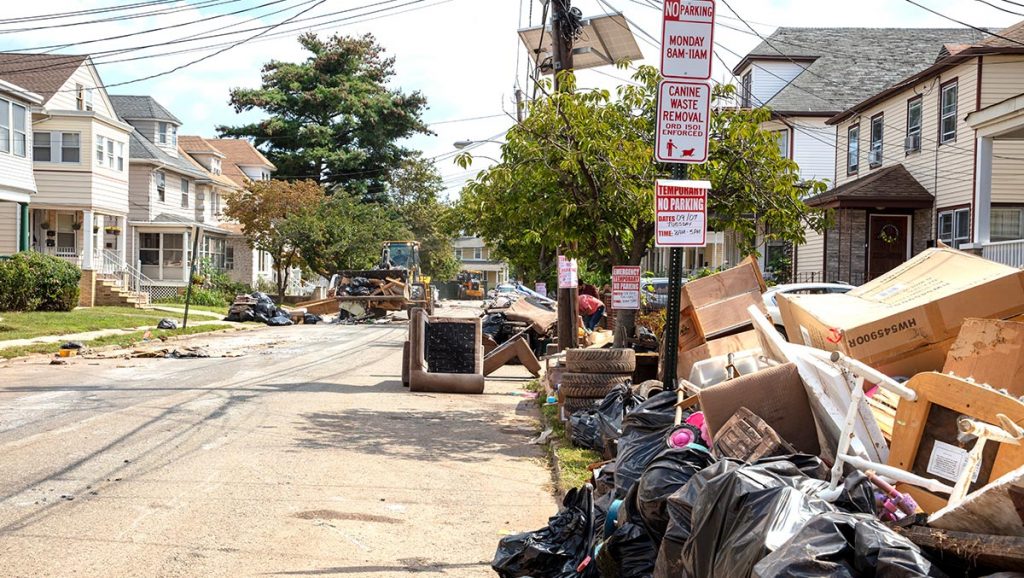
In New Jersey, disaster assessment teams saw destruction everywhere along the path of a tornado that passed through. Working in collaboration with community organizations and local officials, Tzu Chi USA’s New Jersey volunteers launched a thorough assessment of the damages, and soon provided a relief distribution on September 11 which benefited over 110 impacted families. And on September 22, Tzu Chi took part in distribution services organized by the American Red Cross and the Somerset County Government at the Multi-Agency Resource Center in Bound Brook. A third relief distribution was carried out on October 2 at the APA Hotel Woodbridge in central New Jersey, serving 38 families.
Families at the events recounted their harrowing experiences from that night to Tzu Chi volunteers. Even despite the loss of one’s home and material possessions, the strength of survivors shone through. They expressed their thanks to volunteers, not only for the monetary relief but the genuine care they felt. Care recipients were especially interested in the process of creating DA.AI Technology’s eco-friendly blankets, each of which is crafted from approximately 70 reclaimed plastic bottles.
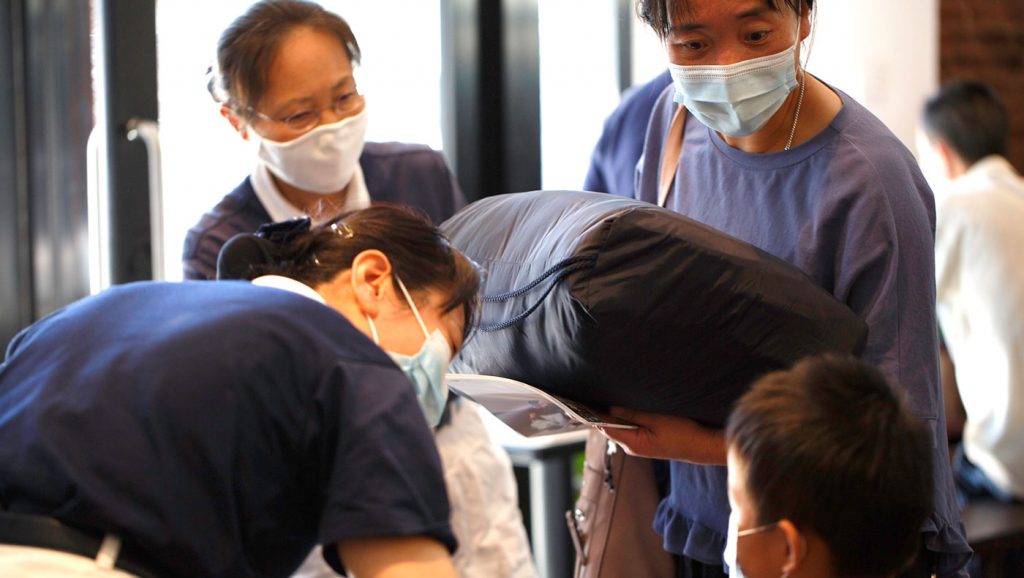
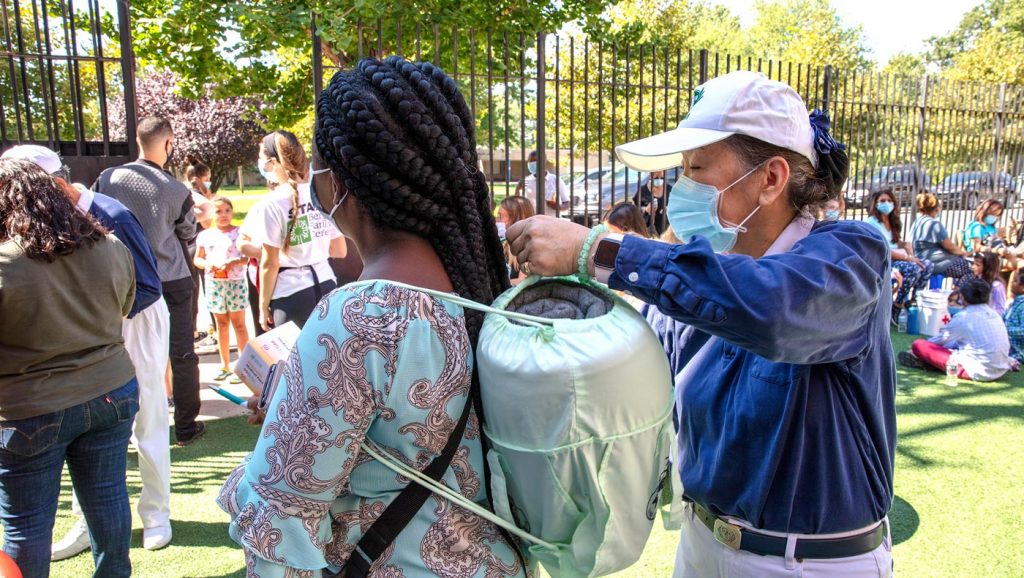
Meanwhile on the Gulf Coast
Back in Louisiana, Tzu Chi’s aid continued upon receiving a request from a non-profit organization that provides care and support for Vietnamese seniors in the New Orleans area.
Due to food shortages brought about by Hurricane Ida, paired with the ongoing challenges of the pandemic, the non-profit was experiencing difficulties obtaining some important food staples. The organization’s president told volunteers that their traditional diet includes jasmine rice and red beans, but now, 700 families were having difficulty obtaining these two essential food items. And thus, a distribution date was set for October 23, 2021.
One of the local volunteers helping at the distribution was Erold Lesperance, a Haitian pastor who teaches French at a local charter school, the International School of Louisiana. His church is currently helping Haiti by collecting supply donations and sending them there via Florida. He and his church members also help provide food for refugee families, and so brought distributed rice from this event to his church.
Another local volunteer, Phong “Robert” Nguyen, is helping the Vietnamese fishing community in Empire, a census-designated place in Plaquemines Parish, Louisiana, rebuild. Many families there have returned home to begin the process, but they could not repair their homes or boats just yet because of material shortages. He said that more than 3,000 fishing boats were damaged during Hurricane Katrina, but this year, the number of boats affected by the storm was far less. Thus, he came to pick up 110 bags of rice to be taken to Empire for distribution. Additional recipients of the donated rice included members of a local Thai Buddhist temple.
Our humanitarian missions are ongoing across the nation and around the globe. By sup-porting Tzu Chi USA’s disaster relief missions, you can be a loving force in someone’s recovery, too. Because while recovery is often a long and winding road, it’s one that’s better with the company of others who care.
And Tzu Chi volunteers are indeed here for the long haul:
Stopping halfway is, in truth, more difficult and tiring than persevering on the path toward the final goal.
Jing Si Aphorism by Dharma Master Cheng Yen
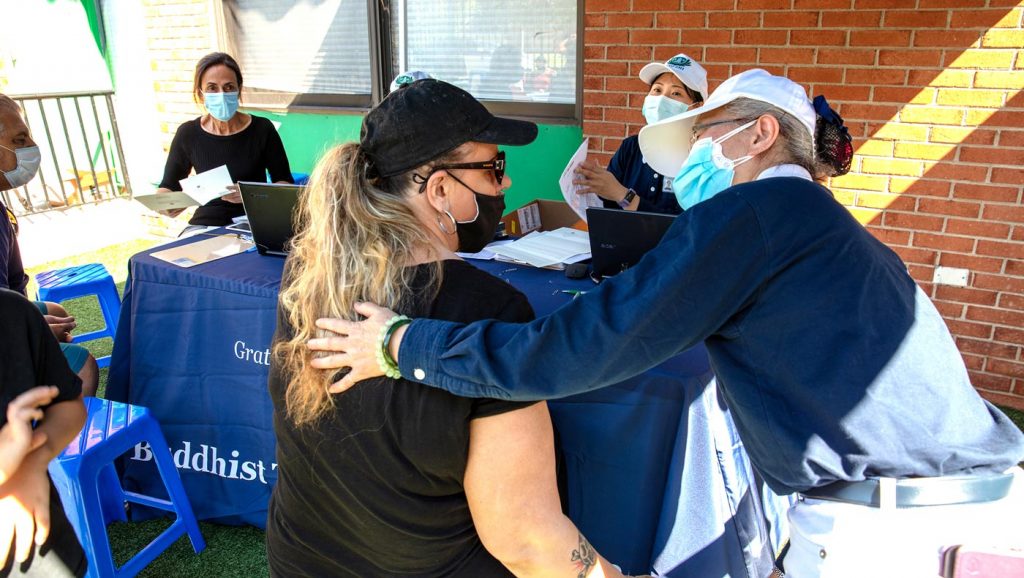
SHARE:
